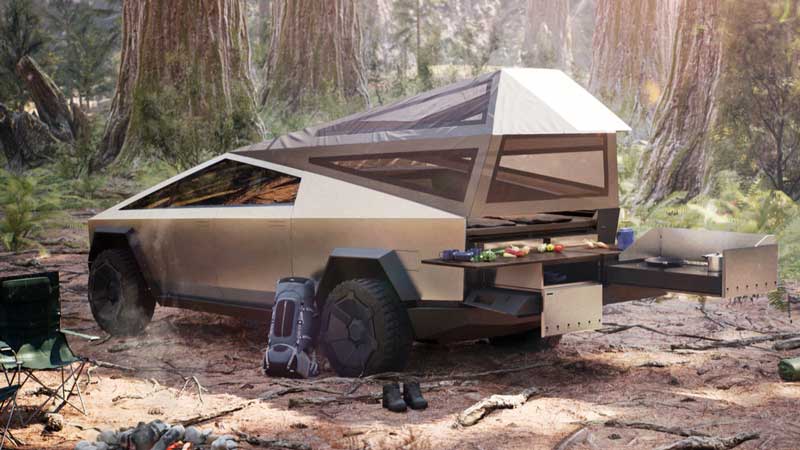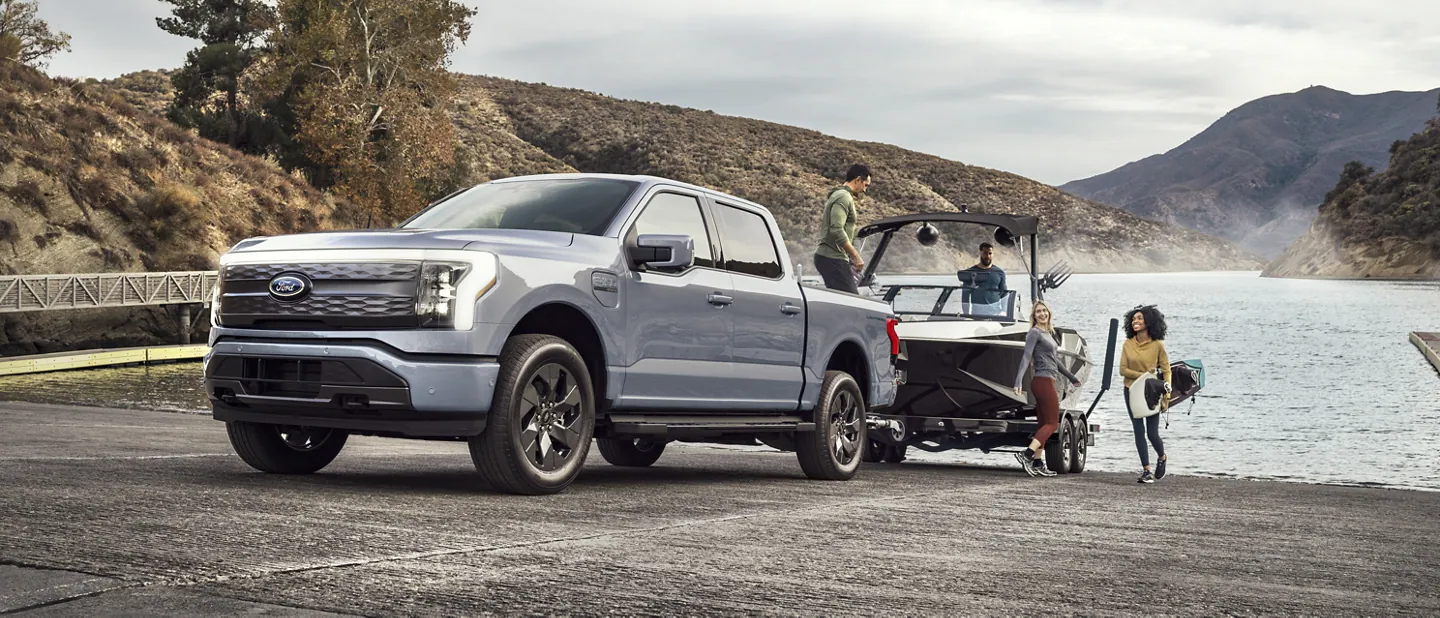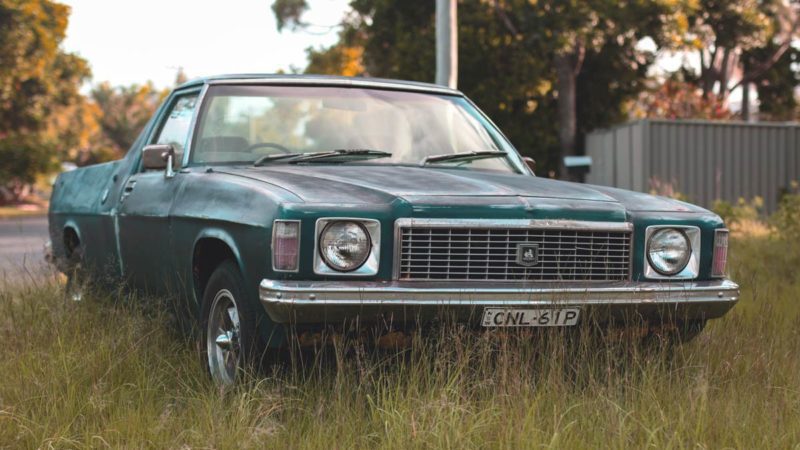It was the anthem of a generation in Australia: Football, meat pies, kangaroos and Holden cars. The advertising ditty said cars but I’ve always sung it in my head as “Holden utes,” because what could be more Australian than that.
The ute (short for utility truck for overseas readers, also known as a pickup in the US) is so firmly embedded in Australian culture that is often cited as the reason that a transition to zero emissions transport is not feasible here.
The irony is that there are plenty of electric options out there, but they are all overseas: Both General Motors and Ford (the Hummer EV, the Silverado EV pickup and the F-150 Lightning) are making them, as well as startups like Rivian (the R1T) and of course Tesla (the Cybertruck – well, it will start making them next year).
There just aren’t any electric utes for sale here yet, and will likely not be for at least a few years, despite research showing there is a huge amount to gain from electrifying utes.
Stepping towards better fuel efficiency standards
Football and “meat” pies will be here for a long time, but because the Holden brand was pulled by GM in early 2020 we literally can’t have new Holden utes anymore.
However, Australia is slowly stepping closer to an electric future filled with utes that will leave their ICE (internal combustion equivalents) in the dust – even on weekends.

The new Labor government has made good on its promise to introduce an actual EV strategy, putting FBT and import tax cuts at the top of the agenda.
But the introduction of electric utes, and enough supply of many electric cars, will be a major hurdle for as long as Australia lacks fuel emissions standards.
In order for carmakers to prioritise EVs for Australia, Australia’s fuel emissions legislation has to be at least as strong as legislation overseas that fines auto manufacturers that don’t lower their fleet emissions.
“These standards work with a carrot and stick approach – car makers are subsidised for providing zero-emissions vehicles and penalised for petrol cars,” says Ajaya Haikerwal, clean transport campaigner at Solar Citizens.
NRMA boss Roland Lund agrees. He is not a fan of government intervention, but warns that unless Australia joins the global transition to EVs, and that means vehicle emissions standards, and even a deadline on ICE sales, then it could be left behind and become a dumping ground for dirty vehicles.
Here our interview with Lund in The Driven podcast: The Driven Podcast: NRMA charges into the EV transition
The unwilling participants in the full transition to clean transport – the Federal Chamber of Automotive Industries (FCAI), Australian Automotive Aftermarket Association (AAAA), Australian Automotive Dealers Association (AADA), National Automotive Leasing & Salary Packaging Association (NALSPA) and Motor Trades Association of Australia (MTAA) – said on Thursday they support legislated standards, but they continue to wave a “technology agnostic” flag.
It’s a flag that argues against introducing targets for a percentage of new EV sales, and particularly takes aim at the ACT government’s decision to ban the sale of all combustion vehicles, including non-pluggable hybrids, from 2035.
As Haikerwal notes, continuing to allow the sale of even hybrids, which must still burn fuel to drive, will consign Australia to a technology backwater.
“What we don’t want to see is hybrid vehicles being subsidised within a mandatory Fuel Efficiency Standards scheme. This will only set us back further from major economies like the US, Japan and the EU – and we’re already way behind.”
Better vehicle emissions standards means better health
Because the fuel that utes burn is often diesel, and because they just burn more of the stuff, they also emit high amounts of noxious fumes and extremely harmful fine particulate matter.
And because Australia’s fuel efficiency standards are a decade behind the rest of the developed world (Euro 5 compared to Euro 6), utes and other large vehicles cause even more harm in Australia than overseas.
We buy them, and drive them, by the bucketload. In the first six months of 2022, more than 100,000 new utes hit Australian roads, accounting for one in five new vehicle sales.
Not only does this increase the transport pollution problem even as EV sales take off, it hits consumers and businesses in the pocket with rising fuel prices.
The problem is exacerbated by tax incentives for businesses to buy them, write them off at tax time in full, and escape the payment of fuel excise if they are driven for business use off public roads (sorry, what was that about less than 50,000 EVs not paying fuel excise?)
Research shows electric utes are probably already more affordable for fleets in the US. Local research conducted in 2019 by ClimateWorks suggests the same would be true for Australia, if only there were some here to buy.
But there’s the rub, again and again. They aren’t.

And despite comments from GM executives this week that Australia will be a ‘cornerstone for expansion,’ that ‘GM has ambitious goals’ and a desire to ‘grow international scale, with AU and NZ as an absolute key pillar of that region,’ a spokesperson for GM Australia confirmed to The Driven that doesn’t mean GM will re-enter Australia leading with EVs.
“While there were a lot of exciting new models mentioned in the (original Drive) article, unfortunately we don’t have any ANZ-specific announcements to make at this time,” the spokesperson said.
Given there are reports that GM has 150,000 orders for the electric Silverado in the US, that’s not surprising.
Similar comments were forthcoming from Ford Australia’s Matt Moran in March. “The F-150 Lightning is an incredibly exciting vehicle for Ford, with huge demand in the US,” said Moran. “We’re excited about bringing F-150 XLT and Lariat to Australia – this has been a long journey and we have a way to go.”

The FCAI says it has commissioned research by S&P Global that shows Labor’s EV target will not be reached if the right signals are not put in place. In particular, it says that there will be few if any mid-sized electric utes being sold in Australia by 2030.
Member of the FCAI Polestar has taken issue with the fact that the FCAI is not sharing the modelling with its members, because if it did its members could plan better for a transition.
“Transparency is absolutely paramount in any discussion around climate action and its associated policies,” a spokesperson for the EV maker said in a note by email.
“As a member of the FCAI, Polestar is disappointed that the FCAI has refused to release the full S&P Global data set that was paid for by its members and conducted on behalf of its members.”
“By comparison, the automotive industry in the UK is taking a leading position on EVs through the FCAI equivalent – the Society of Motor Manufacturers and Traders (SMMT). The SMMT actively engages with the government to educate and encourage the adoption of EVs through the hugely successful ‘Go Ultra Low’ campaign.”
Get it right the first time
In the meantime, the calls for fuel-efficiency legislation may be increasing, but the devil is in the detail.
If the new Labor government legislates weak fuel efficiency standards, it is consigning each and every young Australian to a future that is not daring, not optimistic, and remains a slave to the fossil fuel industry.
While it may have been near impossible to implement bold standards a decade ago when Australia still had its own car manufacturing industry, that hurdle is now gone. Australia only imports cars.
We might still have football and meat pies, but as for the kangaroos? They might not be endangered – yet – by climate change but koalas certainly are.


Bridie Schmidt is associate editor for The Driven, sister site of Renew Economy. She has been writing about electric vehicles since 2018, and has a keen interest in the role that zero-emissions transport has to play in sustainability. She has participated in podcasts such as Download This Show with Marc Fennell and Shirtloads of Science with Karl Kruszelnicki and is co-organiser of the Northern Rivers Electric Vehicle Forum. Bridie also owns a Tesla Model Y and has it available for hire on evee.com.au.

